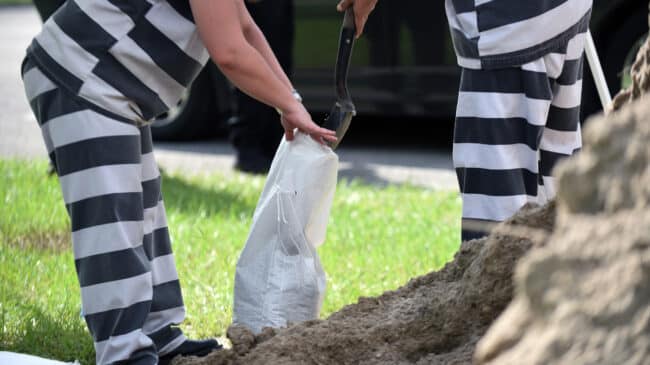Summary
Nevada Question 4 is a proposed constitutional amendment referred by the state legislature to the 2024 ballot that would disallow slavery or involuntary servitude as punishment for a crime. Currently, Article 1 Section 17 of the Nevada Constitution reads, in part: “…there shall be in this state neither slavery nor involuntary servitude, otherwise than in the punishment for crimes, whereof the party shall have been duly convicted.” Question 4 would shorten this phrase to: “…there shall be in this state neither slavery nor involuntary servitude.” The intention is to remove from the constitution the power of the state to force convicted criminals to work.
A legislatively referred constitutional amendment in Nevada must be approved by the legislature in consecutive sessions and then approved by a majority of voters in the next general election to become effective. Question 4 was first proposed in 2021 as Assembly Joint Resolution 10 and secured unanimous approval in both chambers of the legislature in both the 2021 and 2023 sessions to qualify for the 2024 ballot.
Fiscal Impact
Legislative staff did not prepare a fiscal note when Question 4 was presented as a legislative proposal. It is not expected to affect revenues or expenses at the state or local level.
Proponents’ Arguments
Nevada Assemblyman Howard Watts sponsored Question 4 in the legislature and argued, “I believe that it’s time for us to move forward and make it clear and unequivocal that nobody will ever live through the horror of state-sanctioned slavery, or servitude ever again.”
Opponents’ Arguments
During legislative hearings, no one testified in opposition to the proposal that is now Question 4.
Discussion
The phrasing that Question 4 seeks to eliminate is consistent with phrasing in the Thirteenth Amendment to the U.S. Constitution, which was ratified after the conclusion of the American Civil War. The Thirteenth Amendment states, in part: “Neither slavery nor involuntary servitude, except as a punishment for crime whereof the party shall have been duly convicted, shall exist within the United States, or any place subject to their jurisdiction.”
Several state constitutions contain similar language, including those of: Arkansas, California, Georgia, Indiana, Iowa, Kansas, Kentucky, Louisiana, Michigan, Minnesota, Mississippi, Nevada, North Carolina, North Dakota, Ohio and Wisconsin. In 2018, Colorado became the first state to remove the permissibility of slavery or involuntary servitude to be used as punishment for a crime when voters approved Amendment A. In 2020, voters in Nebraska and Utah removed similar language from their state constitutions. In 2022, voters in Alabama, Oregon, Tennessee and Vermont approved similar constitutional amendments. However, voters in Louisiana rejected a proposal to remove this language from their state constitution in 2022.
The clearest implication of removing this language from the state constitution is on prison work programs. Work programs in prisons cover broad ranges of duties, from requiring inmates to do cleaning and repairs to selecting volunteers for cooking or laundry or similar duties, to working in real industries, sometimes with programs run by private companies. There are many pros and cons to these practices. A large-scale study by the National Institute of Justice found that inmates who work while in prison are significantly more likely to find work after they are released and are less likely to be rearrested or convicted for committing more crimes. This was voluntary work, however, not forced labor. Likely the reason there has been no formal opposition to the proposed amendment is that state prisons only conduct voluntary work programs.
One concern about this amendment that was raised when a similar change was made to Colorado’s state constitution was that it would also ban judges from ordering community service. But courts have ruled that community service requirements are not involuntary servitude and so would likely uphold continued use of community service as a punishment even if this amendment passes.
Some argue that the prison work system is rife with abuse. Forced labor, even when ordered as punishment for a crime, raises critical ethical questions. Others say that, overall, prison work programs help make prisons more of a rehabilitative experience.

